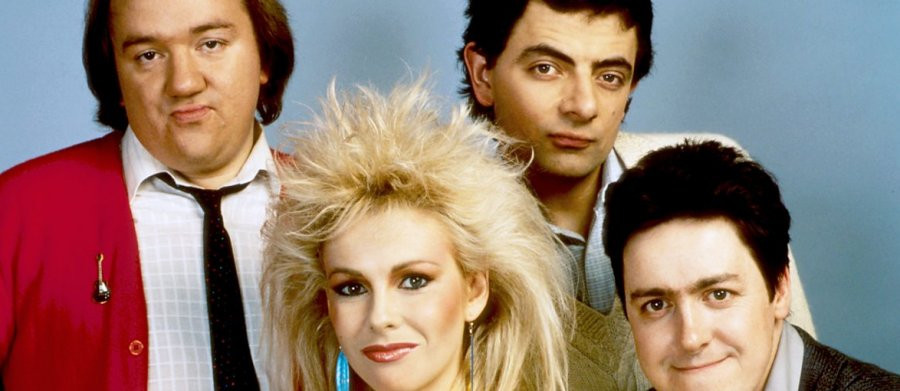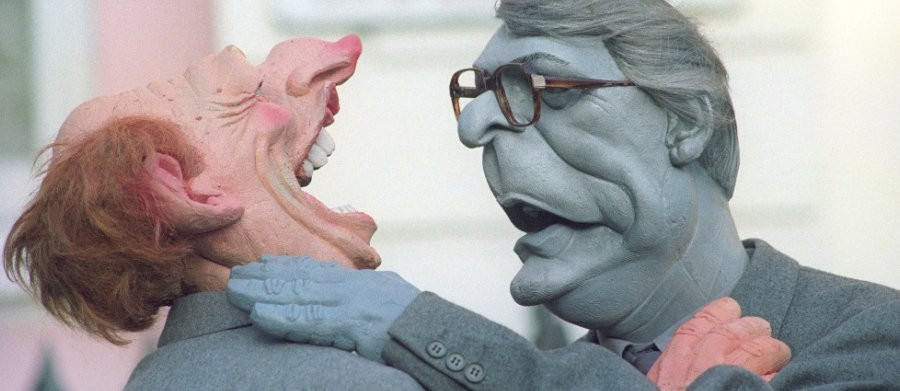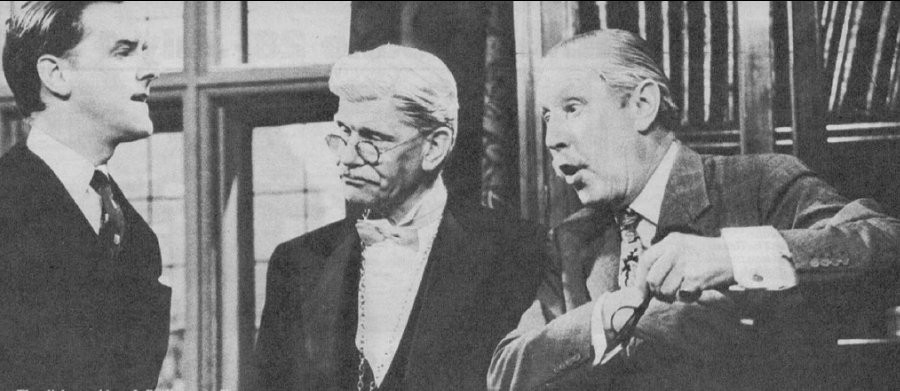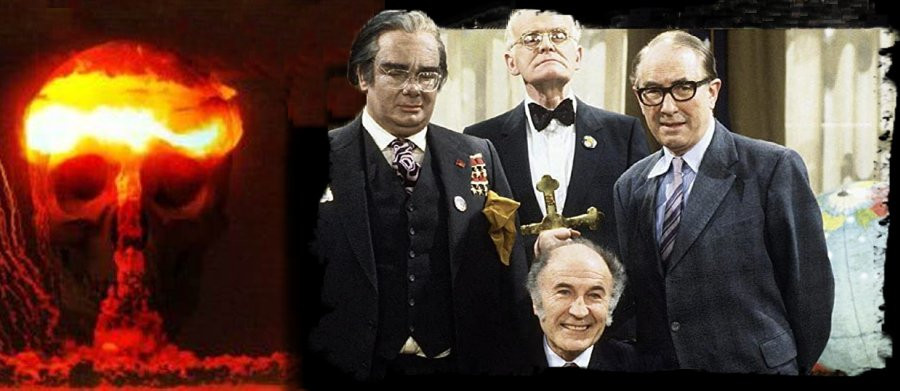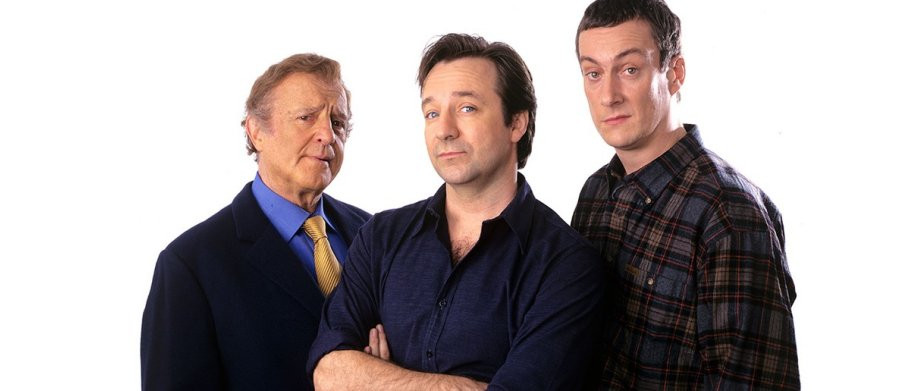
Alpha House and the State of Satire
At the 2003 Oscars, Steve Martin joked about movie stars: "They can be tall or short, thin - or skinny. They can be Democrats..."
He let the word hang in the air and got a big laugh. Everyone in that room knew he could not credibly add the words "Or Republicans."

Martin and his audience are not exactly right wing conspiracy theorists. It is generally accepted on all sides that Hollywood is not an easy town to be a Republican or a conservative. It is a place wracked by guilt at its 1950s "blacklisting" of alleged Communists - some of them actually active members of a pro-Stalinist party - but where writers whose values reflect those of about half the American people are now about as employable as those Communists were.
There are a lot of ironies here. An industry in which standard business practices are so red of tooth and claw as to make it the unacceptable face of capitalism can be very hostile to defenders of more mainstream free enterprise, and a cultural Establishment that likes to call itself liberal can be very illiberal in its employment of those who disagree with its world view.
It may be progress that there is now no formal "blacklist" as such, but at least the "blacklist" had an appeal process. The truth today is simply that in the entertainment media, as in most businesses, contracts depend on contacts, and those with influence are often intolerant when it comes to socialising with people who do not share their professed opinions. Since money always has the final word in Hollywood, exceptions can always be made for established, bankable names, but otherwise those who do not go along with the local consensus on a range of topics are best advised to keep quiet about their beliefs - or at least describe themselves as "independent" or, if very brave, "libertarian," rather than as Republican or conservative.

Something similar is true of the entertainment media in other Western democracies, including the UK, but America, perhaps to its credit, is most open about it, and even jokes about it.
However, the problem this raises for the industry leaders is that it makes it difficult for them to communicate with that half of their principal target market which has perspectives and values that differ from their own. They might not care about them politically or socially but they care very much about them commercially - and in the end that is what really counts in Hollywood.
So, at least from time to time, they accept the necessity of providing shows in which Republicans are not necessarily all snarling villains. Yet even then there seems to be little comprehension of the sort of people for and about whom the writers are writing, because they are unlikely to be close to many of them or socialise with them often, never mind be them.
It is therefore significant that possibly the most valiant attempt at a show with broadly sympathetic Republican protagonists, Alpha House, was made outside the regular Hollywood studio system for Amazon Prime.

The premise of the show, that four GOP Senators share a house in Washington DC, is based on the real life situation of three Democratic legislators who were housemates.
The leading role, Gil John Biggs, is a former basketball coach from North Carolina. American viewers probably recognised this as a reference to Republican Speaker Dennis Hastert, a former wrestling coach later jailed for crimes arising from his abuse of children in his care. Since Biggs is played by American national treasure John Goodman, he is a far more agreeable character, decent and sincere, if not overly bright - but neither is he as stupid as he looks.
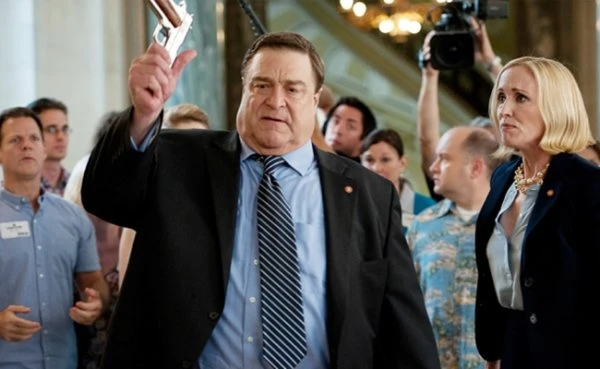
Robert Bettencourt, the most intelligent of the four, sits for the marginal state of Pennsylvania. A moderate Republican who breaks racial stereotypes, he seems to have a lot in common with General Colin Powell. He is played by the brilliant Clark Johnson, who was so good in front of the camera in Homicide Life on the Street and The Wire, but is even better behind the camera as a director of episodic drama: his directorial curriculum vitae includes many of the best shows on television, most notably NYPD Blue, The Shield , Homeland, The Walking Dead, Hell on Wheels, and Black Sails, as well as doubling up several times on 'Homicide' and 'The Wire.'

Louis Laffer, the rather naive, well-meaning traditionalist from Nevada, is possibly the most memorable character thanks to an intriguing performance by Matt Malloy. Laffer - evidently named after the free market economist who gave his name to the Laffer Curve - finds his values challenged, or possibly compromised, when he develops a strange fascination with a male war hero, played by Lee Tergesen. This may be a reference to Senator Larry Craig, a conservative whose career was effectively ended by an odd incident in an airport toilet, which might have been totally innocent. Malloy's character retains a similar ambiguity.
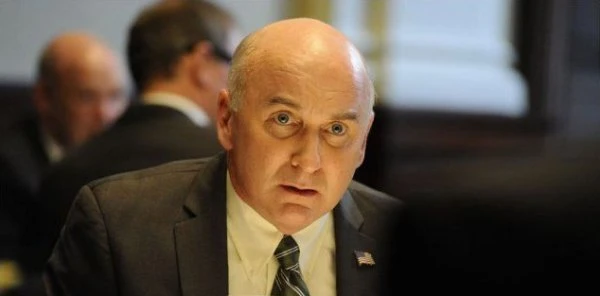
Presidential contender Andy Guzman, played by Mark Consuelos, is obviously based on Senator Marco Rubio, then widely viewed as the great future hope of the GOP, except that Guzman, unlike devout family man Rubio, is portrayed as a compulsive womanizer.
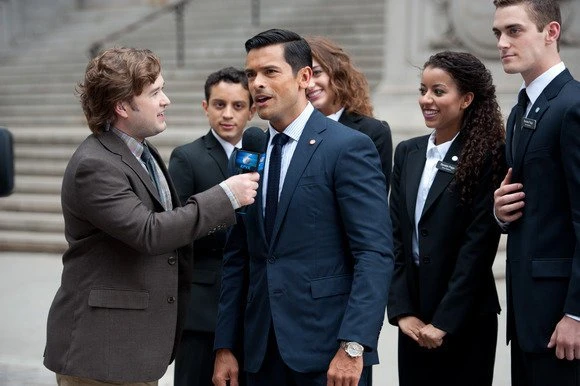
Strong production values are well displayed, the scripts are intelligent and witty if not exactly hilarious, all the performances are good, and there is some credible interplay between the characters. Bill Murray, Wanda Sykes, Cynthia Nixon, and Bob Balaban guest as other Senators. Various real life political and media personalities turn up in cameos.
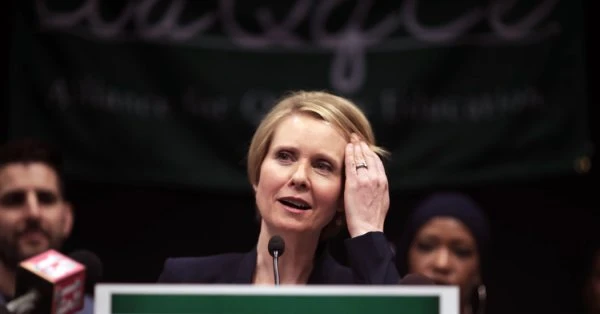
That should not be a surprise because Alpha House is the brainchild of the cartoonist Garry Trudeau, who pioneered this blurring of reality and political satire over thirty years ago with the fake "fly on the wall" documentary Tanner '88. This well regarded series saw actors, including Michael Murphy as fictional candidate Congressman Jack Tanner, interacting with some of the actual candidates and other big players in the 1988 Presidential election. Matt Malloy and Cynthia Nixon were among the other actors involved.
Tanner was so well constructed that some polls at the time had voters preferring him to the real candidates. He was made that way. Tanner was, for many Democratic voters, a dream candidate, as he seems to have been for Trudeau. That is why Tanner '88 succeeded.
That is also why Alpha House failed - or at least failed to connect to a big audience and make a broader cultural impact as 'Tanner' did, despite obviously having a lot of money spent on it. While it succeeded as entertainment, with a lot of clever moments, it lacked the authenticity of 'Tanner' - because Trudeau's heart was clearly not in it.
Although he deserves great credit for trying to humanise people whose political opinions differ from his own - sadly, a rare aspiration these days - he failed because the author of the famously left-leaning 'Doonesbury' cartoon simply does not understand Republicans. While it makes a sincere attempt, Alpha House fails to convey real any sense of who these people are, or of the experiences and intellectual processes that brought them to their beliefs. So they do not convince us and they remain stereotypes.
Of course, so was Tanner. He was stereotypically decent, as Democratic protagonists tend to be in such things. He was given flaws, but they only emphasised his fully rounded humanity. The Republicans of Alpha House, like most screen Republicans, lacked this depth.
There is a great danger in assuming that, because we like to think that we are decent people, all decent people must share our opinions and that those who do not are therefore not decent people. Trudeau and Alpha House saw the danger and had the courage to challenge that assumption, but in doing so they demonstrated that more is required, that people need to be able to tell their own stories and not have them told by their opponents, however well meaning.
The failure of this well made, short lived, and fairly obscure show to live up to its great potential may therefore have a broader significance. America is now a badly divided nation. The same is true of a number of other Western democracies. The entertainment media have an important role in both the division and the possible healing. If the only voices that are heard come from one side, then the other side will feel increasingly excluded, while even the side with the monopoly of voices will suffer because it will increasingly lack all understanding of the other side. It was that lack of understanding that cost the side Hollywood backs dearly in 2016.

It may be that Alpha House did not find its audience because Democrats could not care about Republican protagonists while Republicans were sick of being satirised by Democrats. It might have done better to have followed the example of arguably the best political satire of them all, Yes, Minister , which was written by two men of opposing political views. The problem now is that it is hard to envisage people on different sides even working together these days.
About Writer John Winterson Richards
John Winterson Richards is the author of the 'Xenophobe's Guide to the Welsh' and the 'Bluffer's Guide to Small Business,' both of which have been reprinted more than twenty times in English and translated into several other languages. He was editor of the latest Bluffer's Guide to Management and, as a freelance writer, has had over 500 commissioned articles published.
He is also the author of How to Build Your Own Pyramid: A Practical Guide to Organisational Structures' and co-author of 'The Context of Christ: the History and Politics of Rome and Judea, 100 BC - 33 AD,' as well as the author of several novels under the name Charles Cromwell, all of which can be downloaded from Amazon. John has also written over 50 reviews for Television Heaven.
John's Website can be found at John Winterson Richards
Published on March 11th, 2020. Written by John Winterson Richards for Television Heaven.


